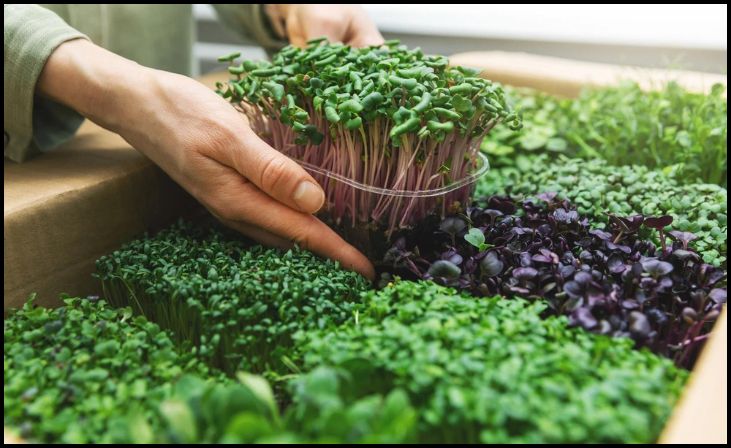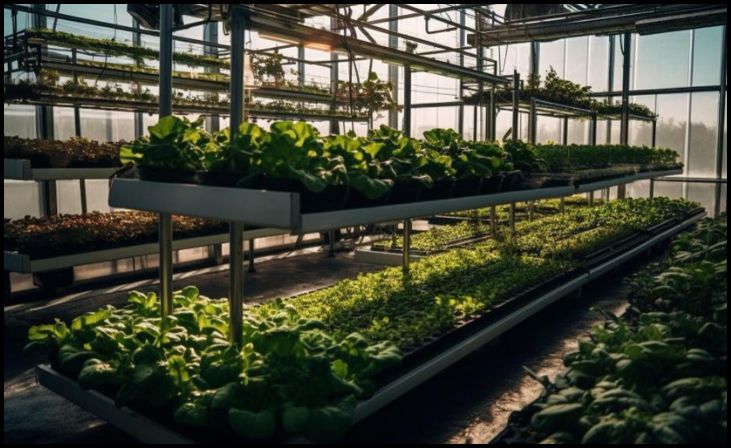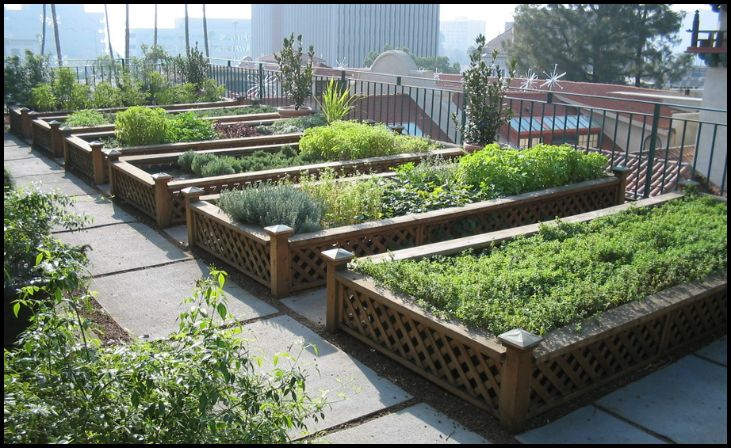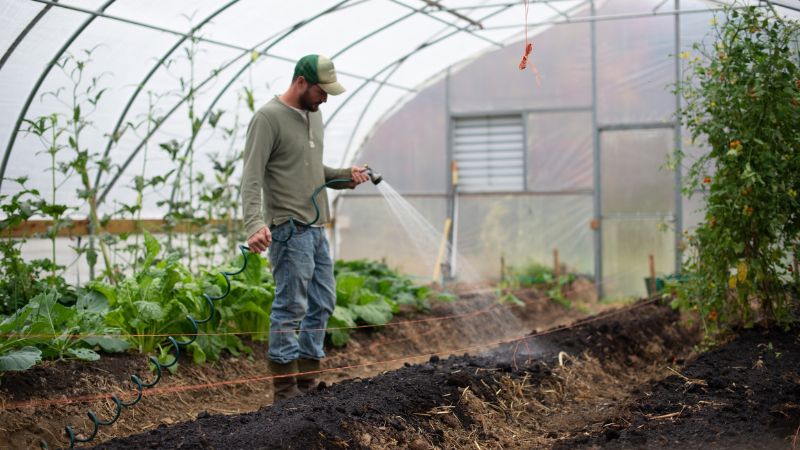In today’s rapidly evolving agricultural landscape, small-scale farming presents lucrative opportunities for entrepreneurs and individuals passionate about sustainable living. With innovative techniques and market demand driving the industry, small farms can yield significant profits while contributing to local food systems. Here are seven of the most profitable small farm ideas in 2024.
1. Microgreens Farming: Cultivating Nutrient-Packed Greens

Microgreens, young vegetable greens harvested just after the cotyledon leaves have developed, are gaining popularity for their intense flavor and high nutritional value. With minimal space requirements and quick turnaround times, microgreens farming can be highly profitable. Varieties like kale, radish, and arugula are particularly sought after by chefs and health-conscious consumers, commanding premium prices in the market.
2. Aquaponics Farming: Symbiotic Integration of Fish and Plants
Aquaponics combines aquaculture (fish farming) with hydroponics (soilless plant cultivation) in a closed-loop system. Fish waste provides nutrients for plants, while plants filter and purify the water, creating a sustainable ecosystem. Tilapia, lettuce, herbs, and tomatoes are commonly grown in aquaponics systems. This innovative method requires less water and space compared to traditional farming, making it ideal for small-scale operations with high-profit potential.
3. Specialty Mushroom Cultivation: Tapping Into the Fungi Market
The growing demand for exotic and gourmet mushrooms has created a lucrative niche for specialty mushroom cultivation. Varieties such as oyster, shiitake, and lion’s mane are prized for their unique flavors and health benefits. Small farms can capitalize on this trend by cultivating mushrooms indoors or in shaded outdoor environments. With relatively low startup costs and high yields, mushroom farming offers a promising avenue for profitability in 2024.
4. Vertical Farming: Maximizing Space Efficiency

Vertical farming utilizes vertical space to grow crops in stacked layers, often indoors using controlled environments and artificial lighting. This innovative approach allows farmers to maximize productivity while conserving land and resources. Leafy greens, strawberries, and herbs are well-suited for vertical farming systems. By leveraging automation and advanced technology, small-scale vertical farms can achieve high yields year-round, catering to urban markets and restaurants.
5. Beekeeping and Honey Production: Supporting Pollinators
Beekeeping not only contributes to honey production but also plays a crucial role in pollinating crops, enhancing agricultural productivity. With the decline in bee populations worldwide, the demand for locally sourced honey and hive products is on the rise. Small-scale beekeepers can establish apiaries in rural or urban settings, producing premium honey varieties and value-added products like beeswax candles and propolis tinctures. Eco-conscious consumers are willing to pay a premium for sustainably harvested honey, making beekeeping a profitable venture in 2024.
6. Herbs and Medicinal Plants: Meeting the Demand for Natural Remedies
The growing preference for natural remedies and herbal supplements has created opportunities for small farms specializing in herbs and medicinal plants. Varieties like lavender, echinacea, and ginseng are sought after for their therapeutic properties and culinary uses. Cultivating these plants organically and offering value-added products such as teas, essential oils, and herbal remedies can significantly increase profitability. Direct marketing channels such as farmers’ markets and online platforms enable farmers to connect with health-conscious consumers seeking high-quality, locally sourced herbs.
7. Urban Farming: Greening Cities and Meeting Local Demand

Urban farming addresses food security issues while revitalizing unused urban spaces. Rooftop gardens, vacant lots, and community gardens are transformed into productive agricultural zones, supplying fresh produce to local residents and businesses. Leafy greens, microgreens, and small fruits like strawberries thrive in urban environments with proper management and irrigation systems. By embracing urban farming techniques such as container gardening and vertical growing, small-scale farmers can tap into the growing demand for locally grown produce while revitalizing urban landscapes.
Conclusion
In 2024, small-scale farming offers diverse and lucrative opportunities for entrepreneurs seeking sustainable and profitable ventures. From microgreens and aquaponics to specialty mushrooms and urban farming, innovative approaches and niche markets drive profitability in the agricultural sector. By harnessing modern techniques, leveraging market trends, and prioritizing sustainability, small farms can thrive and contribute to local food systems while reaping significant financial rewards. As consumer preferences continue to evolve, the future of small-scale farming remains bright and promising.
